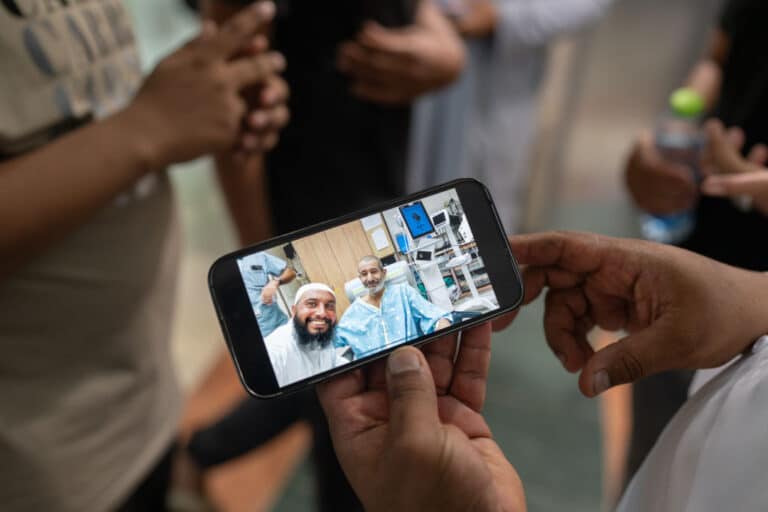
Qaid Farhan Alkadi, a Bedouin-Israeli father of 11 taken hostage by Hamas on Oct. 7th, was freed from captivity on Tuesday by the IDF.
Alkadi was taken hostage while working at a factory on Kibbutz Magen, near the Gaza border.
With Alkadi’s return, 108 hostages are still held by Hamas in Gaza.
For just right now, our hearts are full 💙:
— Israel ישראל (@Israel) August 27, 2024
Family members of rescued hostage Qaid Farhan Alkadi run to greet him at the hospital.
pic.twitter.com/bgzAfP9ZvI
How the rescue played out
While many of the details of the rescue operation are still unclear, some facts about the evacuation have been revealed.
Alkadi was found alone in a tunnel under southern Gaza. IDF soldiers, including from Shayetet 13 – the Israeli equivalent of the Navy SEALs — were searching the tunnel after receiving intelligence about the site.
Body cam footage from the moment Qaid Farhan Alkadi was rescued by IDF troops: pic.twitter.com/YTK3DavEOw
— Israel Defense Forces (@IDF) August 27, 2024
The IDF insinuated that it was aware that a hostage was being held in the tunnel, but reportedly did not know that Alkadi specifically was in the tunnel when it launched the search.
Much of the information about the operation is still classified, as releasing such information could negatively impact future rescue operations.
Alkadi told his family that as soon as IDF soldiers neared the area where he was held, the terrorists guarding him fled.
“Suddenly, I heard someone outside the door speaking in Hebrew. I didn’t believe it, I didn’t believe it,” Alkadi told President Isaac Herzog.
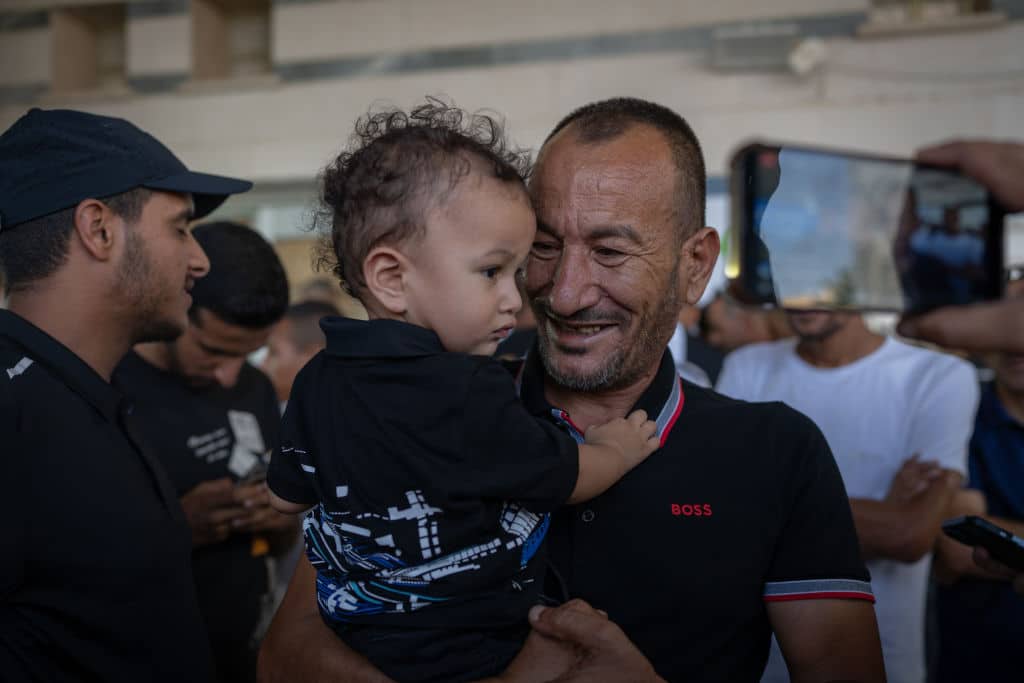
Alkadi’s brother, Hatem, described their reunion after the rescue, saying, “We are tearing up. He asked about the children, and we told him they are all fine. After 11 months, he’s thinner, but he’s alive. We hope this joy will come to all the hostages’ families.”
This was the first time a hostage was freed from a tunnel; all previous rescue missions found hostages in above-ground buildings.
Alkadi didn’t see the light of day for eight months
While in captivity, Alkadi was malnourished and abused by Hamas terrorists, former Rahat mayor Ata Abu Madighem told Israeli media after speaking with Alkadi Tuesday.
“Farhan speaks of a very cruel captivity. He didn’t see sunlight for almost eight months. He wasn’t sure that his eyesight worked because he spent so much time in the dark,” said Abu Madighem.
Today, the IDF and ISA rescued the hostage Qaid Farhan Alkadi, aged 52, from Rahat, who was abducted by the Hamas terrorist organization into Gaza on October 7.
— Israel Defense Forces (@IDF) August 27, 2024
He is in a stable medical condition and is being transferred for medical checks at a hospital. His family has been… pic.twitter.com/lGBKa3aaaO
Alkadi also said that another hostage was kept with him for several months but died at his side in captivity. The identity of the hostage has not been publicized.
One of Alkadi’s relatives told Israeli media that he lost at least 20 kg (44 lbs) while in captivity. The former hostage told relatives that he was fed only a little bread by his captors and was not given food every day.
Alkadi was hospitalized for medical evaluation after his rescue but appeared to be in stable health besides his malnourishment.
Bedouin community still waiting for other hostages in Hamas captivity
The Bedouin community, much of which lives in southern Israel, was heavily impacted by the Oct. 7th attacks.
Hamas terrorists who flooded into southern Israel did not differentiate between Muslims and Jews in their killing spree. At least 21 Bedouin-Israelis were murdered during the attack, including by Hamas rocket fire.
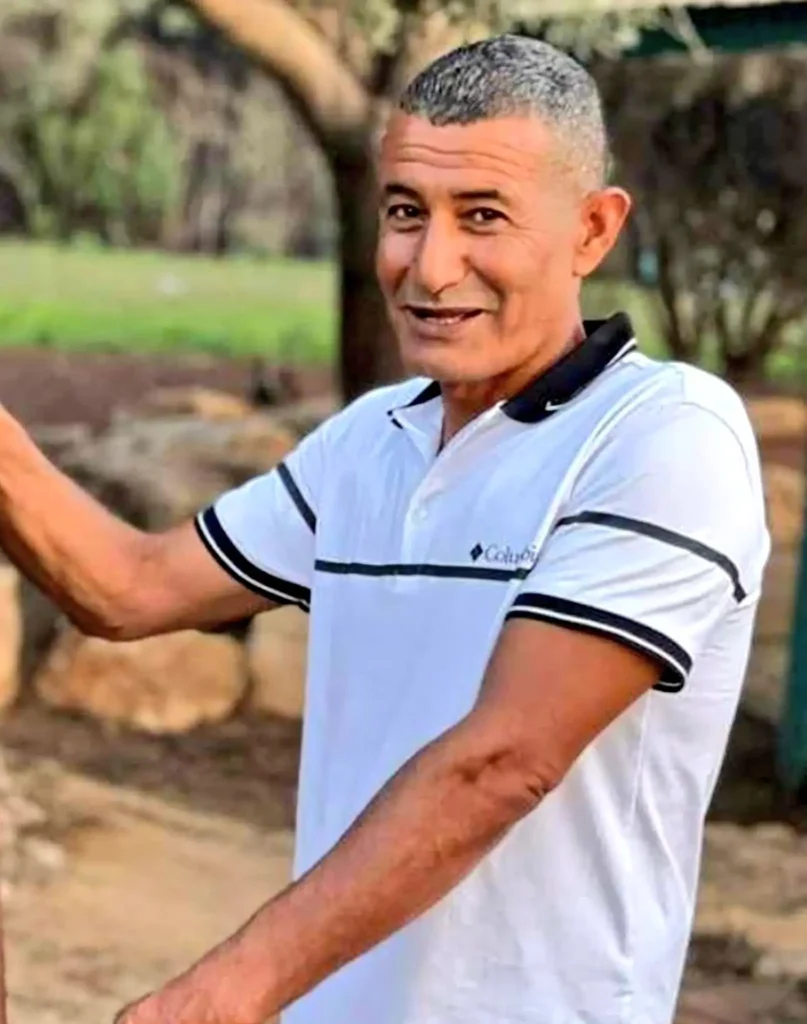
Three Bedouin-Israelis kidnapped in the attacks are still held hostage by Hamas, including Mohammad Alatrash, an IDF tracker who was killed while fighting terrorists amid the attack; Yousef Ziadna, who was kidnapped while working in Kibbutz Holit near the Gaza border; and Hamza Ziadna, Yousef’s son.
Yousef’s daughter, Aisha, and another of his sons, Bilal, were released in a ceasefire deal in October.
Another Bedouin-Israeli hostage, Samar Fouad Talalka, was accidentally killed with two other hostages by IDF soldiers in a tragic incident in December.
Another Bedouin-Israeli, Hisham al-Sayed, was kidnapped in 2014 and is still being held by Hamas as well.
Efforts to release the remaining 108 hostages
After his rescue, Alkadi stressed the need to save the 108 remaining hostages in conversations with political leaders.
“People are suffering there. Do everything to bring the people back home. You have to work 24 hours, not sleep, for them to come back. People are really suffering, you can’t imagine,” Alkadi told Herzog.
In a conversation with Prime Minister Benjamin Netanyahu, Alkadi reiterated that “there are more people waiting” to be rescued.
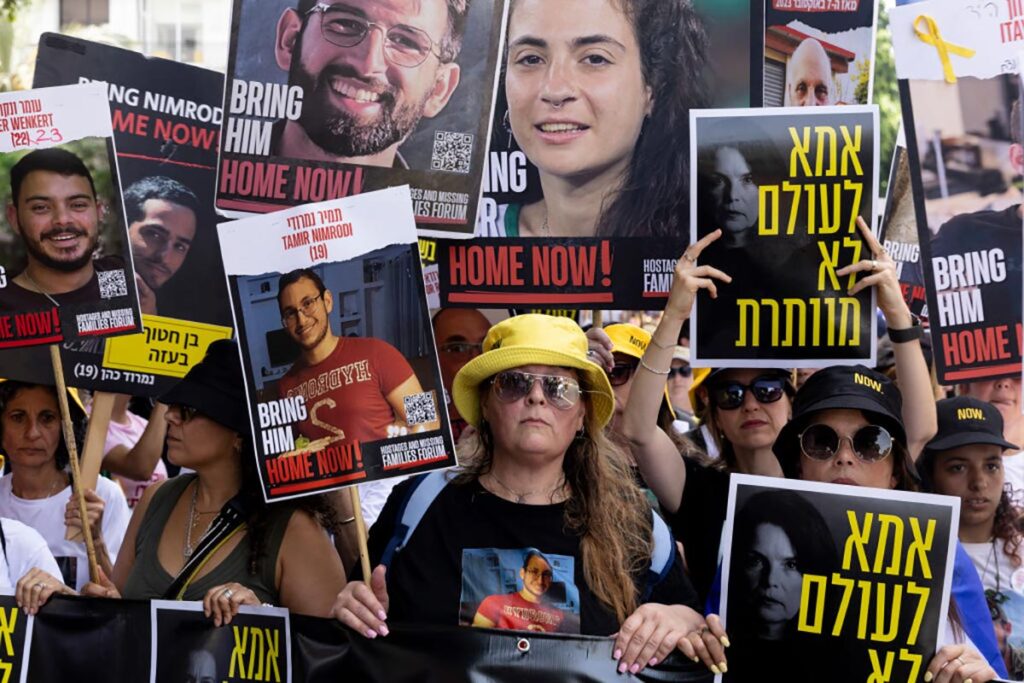
His rescue comes as ceasefire and hostage release talks between Israel and Hamas continue as world leaders push for progress.
An Israeli negotiating team has been traveling back and forth between Egypt, Israel, and Qatar to meet with mediators and secure a deal. Hamas has so far rejected the proposals presented up to date.
The mediators are working on a new proposal in the hope Hamas agrees to a deal. The latest proposal is expected to be presented to both sides in the coming days.
A US official told CNN on Monday that the talks in Egypt were “constructive and were conducted in a spirit on all sides to reach a final and implementable agreement.”
Several obstacles are still blocking a deal
There are several major gaps that still need to be bridged before a deal can be reached.
For one, Israel and Hamas are still divided on whether Israel will keepkeeping forces along the Egypt-Gaza border, an area known as the Philadelphi Corridor. The IDF has found dozens of smuggling tunnels in the area and wants to keep troops along the corridor to ensure Hamas doesn’t rebuild those smuggling routes. Hamas wants the IDFthem out and considers an Israeli presence there as a red line.
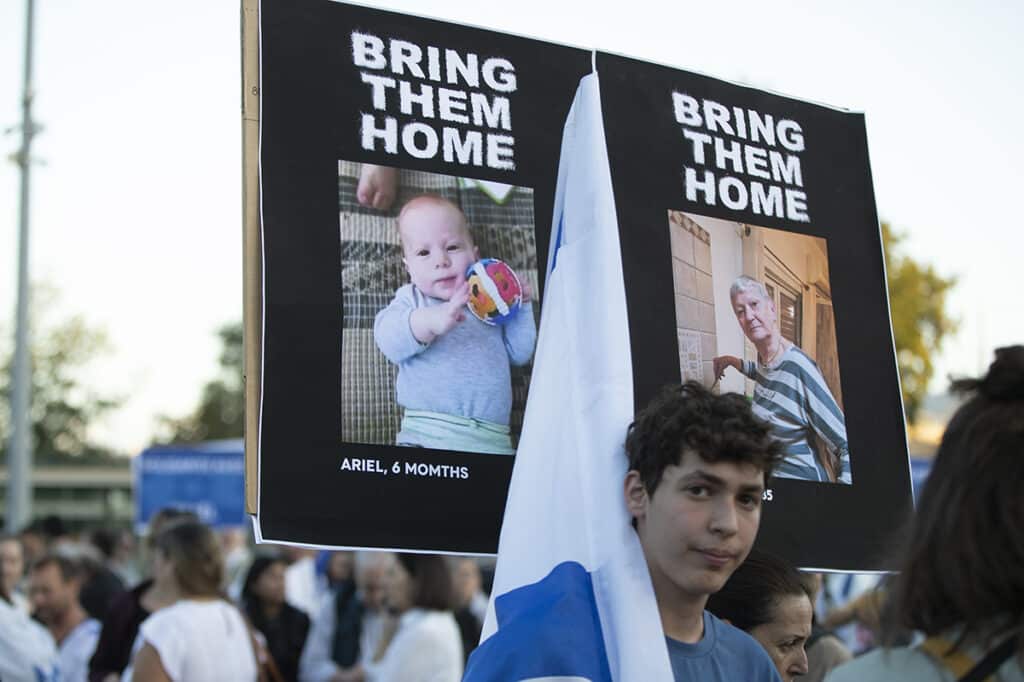
The mediators are reportedly working to find a compromise in which Israel would keep some forces in parts of the corridor in the first phase of a deal but leave in the second phase.
The second central sticking point is the return of Gazans to northern Gaza. Israel wants to monitor the movement of Gazans northward to prevent Hamas terrorists from sneaking northward among civilians. Hamas wants Israeli forces far away from the routes Gazans would be taking to go northward.
Hamas and Israel are also reportedly arguing about which Palestinian prisoners would be released in exchange for the Israeli hostages, as well as whether or not released prisoners will need to be exiled from the region.
Many Israelis have been calling on the government to accept a hostage release deal at weekly protests, even if a deal would mean ending the war now and forcing Israel to make concessions.
A poll published by Israel’s public broadcaster KAN Friday found that 49% of the Israeli public supports accepting a deal that would include a ceasefire and gradual withdrawal from the Philadelphi Corridor, as long as it also includes a possibility to resume fighting after about six weeks. 30% opposed the option, while 21% said they were unsure.
The poll also asked respondents if they think Israel should continue the war even if it means leaving the hostages in captivity or if Israel should end the war and free the captives, even without completely destroying Hamas. 50% of the respondents said they supported ending the war, while only 27% expressed support for continuing. 23% said they were unsure.
Originally Published Aug 27, 2024 08:25PM EDT
